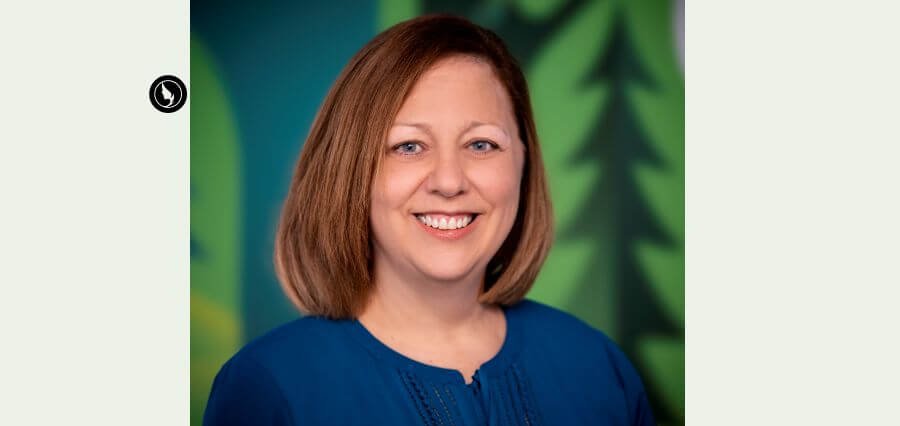The healthcare sector is constantly upgrading to address the increasing and varied requirements of patient treatment. Nursing plays a more critical role in patient care than ever before, leading to advancements in quality, safety and patient outcomes. Hospitals are working to improve by creating effective care models that emphasize innovation and developing their workforce while also providing compassionate care. The focus on developing durable care systems that can adjust to evolving healthcare trends has elevated the importance of leadership in nursing to influence the future of healthcare.
Bonnie Fryzlewicz, Senior Vice President and Chief Nursing Officer is recognized for her dedication to improving patient care and nursing leadership. She focuses on building relationships and guiding new leaders while also promoting flexibility in an evolving healthcare industry. Her ability to combine a strategic outlook with practical engagement has established her as a prominent leader in nursing practice.
Seatle Children’s Hospital is committed to delivering high-quality care to its patients. The hospital is leading the way in championing diversity and inclusion among its employees, guaranteeing that its healthcare services are both groundbreaking and equitable. Seattle Children’s is a vital champion for progressing pediatric healthcare and reducing disparities in patient outcomes.
Let’s explore how Bonnie is shaping the future of nursing with care, innovation and inclusivity!
Transition From a Travel Nurse to a Leadership Role
Bonnie’s journey to Senior Vice President (SVP) and Chief Nursing Officer (CNO) was not intentional. She has been a nurse for more than 30 years. Early in her career, Bonnie pursued travel nursing with the purpose of finding someplace where she could pursue her master’s degree. Bonnie ended up at the University of Washington, working at Seattle Children’s, where her career grew organically over the years.
After earning her Master of Science in Nursing degree, Bonnie wanted to work as a clinical nurse specialist. She accepted a position as a clinical nurse specialist at Primary Care Children’s Hospital in Utah, then found herself back at Seattle Children’s in a staff nurse position. Bonnie shares, “I was very fortunate over the years to have many opportunities to learn and grow. I spent most of my leadership career serving patients in the Seattle Children’s cancer program. Over the years, I was asked to take on additional projects and roles, and I always said yes!”
Bonnie adds, “There are two ways to grow your career: organically and taking what comes and focusing on milestones and specific goals.”
On the Professional Growth Trajectory
Bonnie worked in the cancer program for about 15 years, both as a clinical nurse specialist and as program director. She also managed the surgical unit, the dialysis unit and other areas. Bonnie shares, “I always felt like I’d rather try something and realize it’s not the right thing than just say no.”
Bonnie was the associate chief nurse for critical care for about three years. She has served as CNO since November 2018 and as SVP for the past two years.
Ensuring High-Quality Patient Care
As CNO, Bonnie is responsible for ensuring that Seattle Children’s has an adequate nursing workforce to provide the best care possible, fostering a culture of continuous improvement and innovation, and listening to the voices of patients, families and workforce.
Bonnie emphasizes, “It is all about patient safety and quality care. Those are, to me, the foundations of nursing leadership.” Another responsibility of the CNO is to make sure Seattle Children’s continues to provide safe, high- quality care now and for future generations of kids. Bonnie focuses on what Seattle Children’s needs to do now so that in 10 years, it is still thriving and delivering the same level of care and service to its patients.
Accepting Change and Developing Relationships
Bonnie is continually developing her leadership style. She asserts, “It’s important to me to interact with nursing leaders and build relationships to really understand their interests and passions.”
It’s not always growing someone in a different role but also using opportunities to energize someone, help them develop different skills, and set them up better for career development.
Bonnie shares, “One of the greatest skills for any leader is having the ability to connect with their team and develop relationships.”
Another important component for leaders is the ability to manage change. The healthcare industry is constantly evolving, including how industry leaders think about the nursing workforce. The ability to not only manage and accept change but to really seek and embrace it is more important than ever before.
Balancing Operational Responsibilities in the Healthcare Industry
Bonnie believes, “Maintaining a balance of operational responsibilities with strategic leadership is only possible with the right team. My job is not to be embedded in day-to-day operations but to make sure we have the right people in place to execute effective daily operations.” Along with daily operations, it’s important to intentionally carve out time to focus on strategy and innovation.
Bonnie prioritizes delegating responsibilities so she can focus on nursing’s strategic priorities. Therefore, having the right people and structure in place, then being intentional with time, ensures that a leader can focus on strategy and future vision.
Fostering an Inclusive Work Environment
Bonnie recognizes that Seattle Children’s needs to continue diversifying its nursing workforce. While she wants the work to go faster than it has, progress is steady. Seattle Children’s knows that a workforce that reflects its patient population can result in more equitable outcomes and improved patient and family experience.
Bonnie and her leadership have developed a nursing strategic plan that incorporates health equity and anti-racism in all foundational elements. The plan is informed by healthcare outcomes and data, which helps identify where disparities still exist. An ongoing area of focus is reducing disparities in central line-associated bloodstream infections (CLABSI). Through equity-focused quality improvement efforts involving leadership, nursing, Seattle Children’s Center for Diversity and Health Equity, Patient and Family Education and patient families, disparities in central line infections have been eliminated for Black and African patients. Work continues to eliminate disparities for patients and families who use a language other than English.
“I strive to ensure that Seattle Children’s has an inclusive work environment, which includes recruiting and retaining a diverse workforce and ensuring every member feels like part of the team,” shares Bonnie. “We’ve done so much work, and we have made progress. But we still have a long way to go.”
Staying Ahead in the Healthcare Industry
Bonnie is enthusiastic about learning from others. She believes, “Reading articles and journals and attending conferences is crucial, but one of the most helpful things for me is collaborating with nursing leaders at peer institutions.” A CNO group meets twice a year in person through the Children’s Hospital Association, providing opportunities to learn from each other.
She also meets with local Seattle area CNOs, where they learn what’s happening at the local and state level around staffing, legislation, etc. Bonnie is also an active member of the Washington State Hospital Association and the nursing and CNO groups there. Similarly, Bonnie is on the board of the Northwest Organization for Nurse Leaders and participates in developmental leadership opportunities through the American Organization for Nursing Leadership.
Bonnie emphasizes, “I think at the highest level, it’s about connecting and continuing to learn and seeking other opportunities.” She is currently participating in the Johnson & Johnson Nurse Innovation Fellowship, a partnership between a CNO and a nurse leader, sponsored by Johnson & Johnson and the University of Pennsylvania. The fellowship funds nursing leaders to learn how to identify a problem and work on an innovative solution. Bonnie shares, “It’s an exciting opportunity to learn, develop, and think about how we can make a meaningful impact on the practice of nursing. I feel very fortunate to be a part of it.”
Advice to Aspiring Nursing Leaders
Bonnie’s advice to aspiring nursing leaders is straightforward: “Be a risk-taker, be open-minded, and think about a team. An individual can only do so much.” She believes those interested in leading must think about that team approach and not be afraid of failure — because you learn from it. “As a leader, some approaches will not work but don’t run away from it. Rather, take what was learned and apply it to that next iteration,” Bonnie says.
Fostering Innovation and Improvement
Bonnie desires to make Seattle Children’s a highly sought- after organization for nurses, to maintain its Magnet status, and to excel in quality and service outcomes for patients and their families. Nurses and nurse leaders are encouraged to participate in research and lead evidence- based practice projects to foster their growth and improve nursing practice.
Bonnie is continually developing strategies to recruit and retain the best nursing workforce to lead Seattle Children’s now and in the future. She asserts, “Data shows that the current incoming nursing workforce is likely not going to work in the inpatient setting at the bedside for more than several years.”
Thus, Bonnie works to find solutions for how Seattle Children’s will adapt to this deficit and what the organization can do to recruit and retain its exceptional nurses.
Bonnie shares, “I need to think about how we put together a menu of solutions to make sure Seattle Children’s has the workforce needed to care for our patients — now and into the future.”




